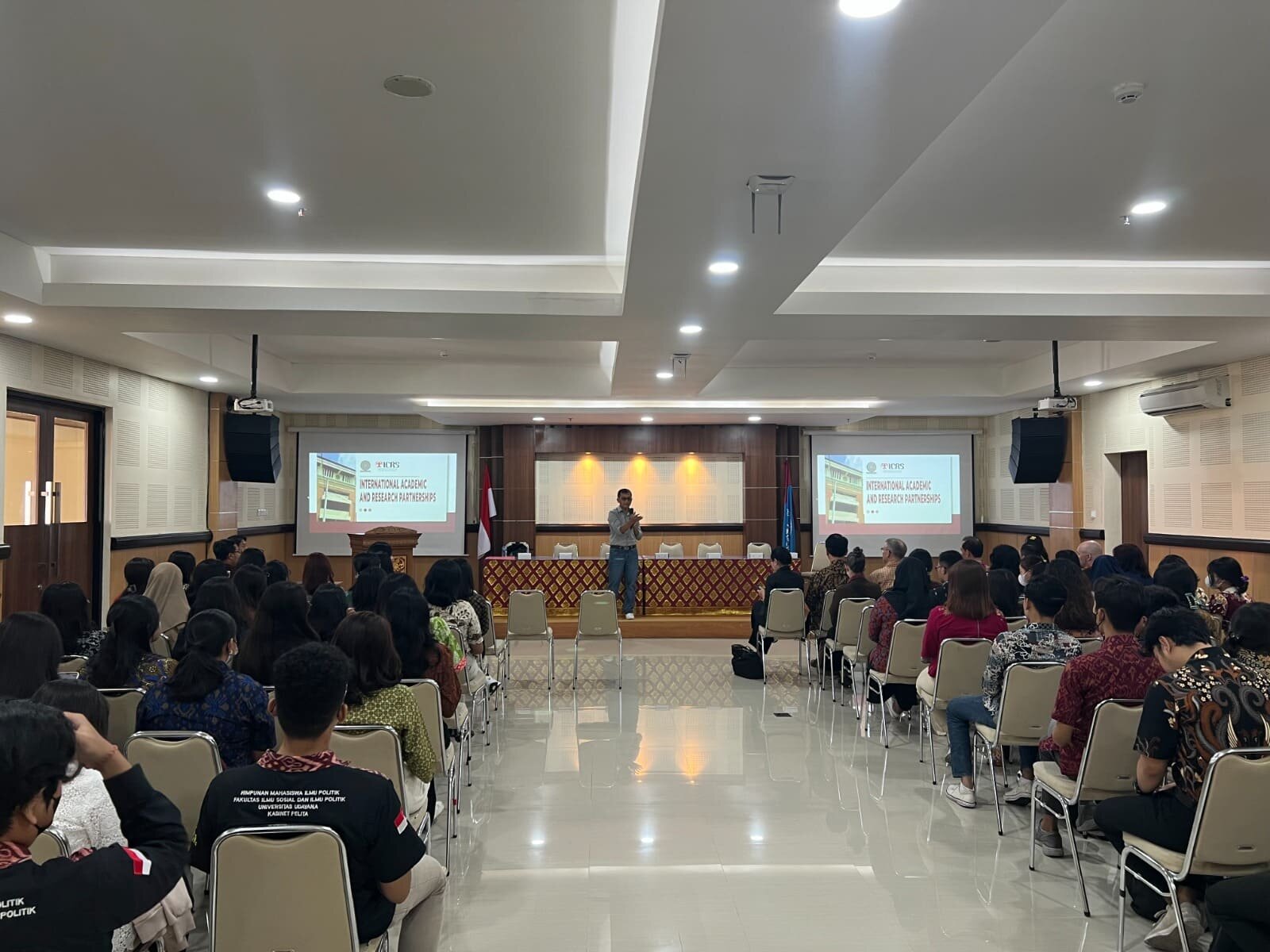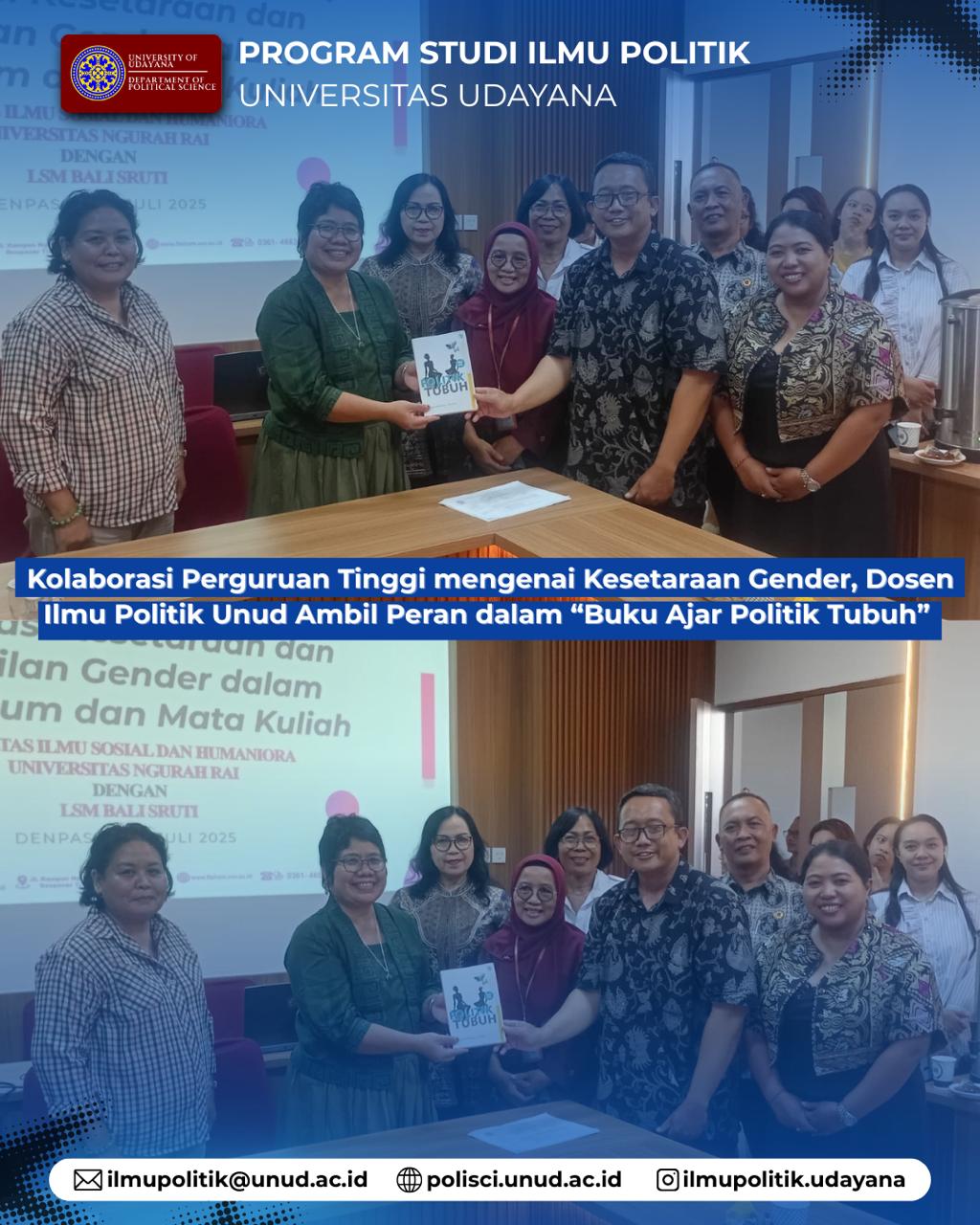Establishing Collaboration, Political Science of Udayana University Holds Public Lecture together with ICRS UGM
In order to build cooperation, the
Faculty of Social and Political Sciences of Udayana University welcomed ICRS
UGM, who was also present as a speaker at the Political Science Public Lecture
which was held in the Hall of the Faculty of Social and Political Sciences
Udayana University. (10/05/2023)
As an institution that focuses on
religious studies in Indonesia, ICRS (Indonesian Consortium for Religious
Studies) is certainly important to strengthen cooperative relations between
institutions to increase religious studies related to social science. ICRS
itself is a combination of three universities, namely Gadjah Mada University
(UGM), Sunan Kalijaga State Islamic University (UIN), and Duta Wacana Christian
University (UKDW). The arrival of ICRS to FISIP Udayana was welcomed by the
Dean of the Faculty, Dr. Drs. I Nengah Punia, M.Si. and Deputy Dean 3 Dr. I
Made Anom Wiranata, M.A., S.IP., along with the staff. From ICRS, Dr. Dicky
Sofjan, as the Core Doctoral Faculty, Dr. Leonard Epafras, as the Core Doctoral
Faculty, Dr. Michael Quinlan as Visiting Lecture, Hendrikus Paulus Kaunang,
M.A., as Academic Coordinator, Ida Fitri Astuti, M.A., as Program Manager and
Les Redfern as IIAP Director.
The exploratory event was then
followed by a Public Lecture entitled Religious Literacy, which was hosted by
Dr. Dicky Sofjan Together with ICRS partners. This theme was carried out,
bearing in mind that political and religious issues are currently rife in
Indonesia. Thus, it becomes important to have and understand religious
literacy, which is an ability to see and analyze the fundamental connection
between religion and social, political and cultural life through various
perspectives.
In his explanation, Dr. Dicky
Sofjan explained that sometimes many people are still mistaken in interpreting
learning about religion, not studying religion. Many people also study religion
but do not understand religion itself. This is one of the challenges in this
modern era, where it is very easy for people to find out something
pragmatically about religion, but forget to see who and what they got.
However, Dr. Leo added, “mastery
of these religious texts does not guarantee that someone is literate in
religion. Religious literacy is not only about the ability to read in the sense
of 'spelling' skills of religious texts. However, religious literacy is a
combination of the ability to read religious texts, select information and
knowledge in these religious texts, see and analyze them in a variety of
contexts, for further use in one's religious life.
Political Science and
Communication Science students who were also present as participants in the
activity were enthusiastic about listening to the material provided. Not a few
of the participants participated to provide questions related to the theme of
this public lecture and a number of relevant phenomena. One of the excerpts
that made an impression on the mind of one of the student questioners from the
public lecture this time was "Not studying religion, but learning about
religion".
This lecture also illustrates that
religious literacy is not only interpreted as knowing a particular religious
teaching. Nor is it only being able to read certain religious texts-both sacred
and profane. Nor is it only being able to read certain religious texts-both
sacred and profane. It is hoped that this public lecture will not only provide
new understanding but also attract students' interest in religious studies.
By:
Ni Wayan Radita Novi Puspitasari,S.S.,M.A.,M.Phil.
Ritaro Hari Wangsa




FACULTY OF SOCIAL AND POLITICAL SCIENCE